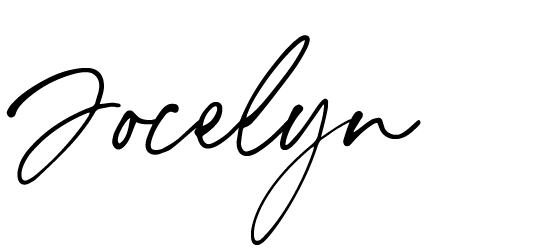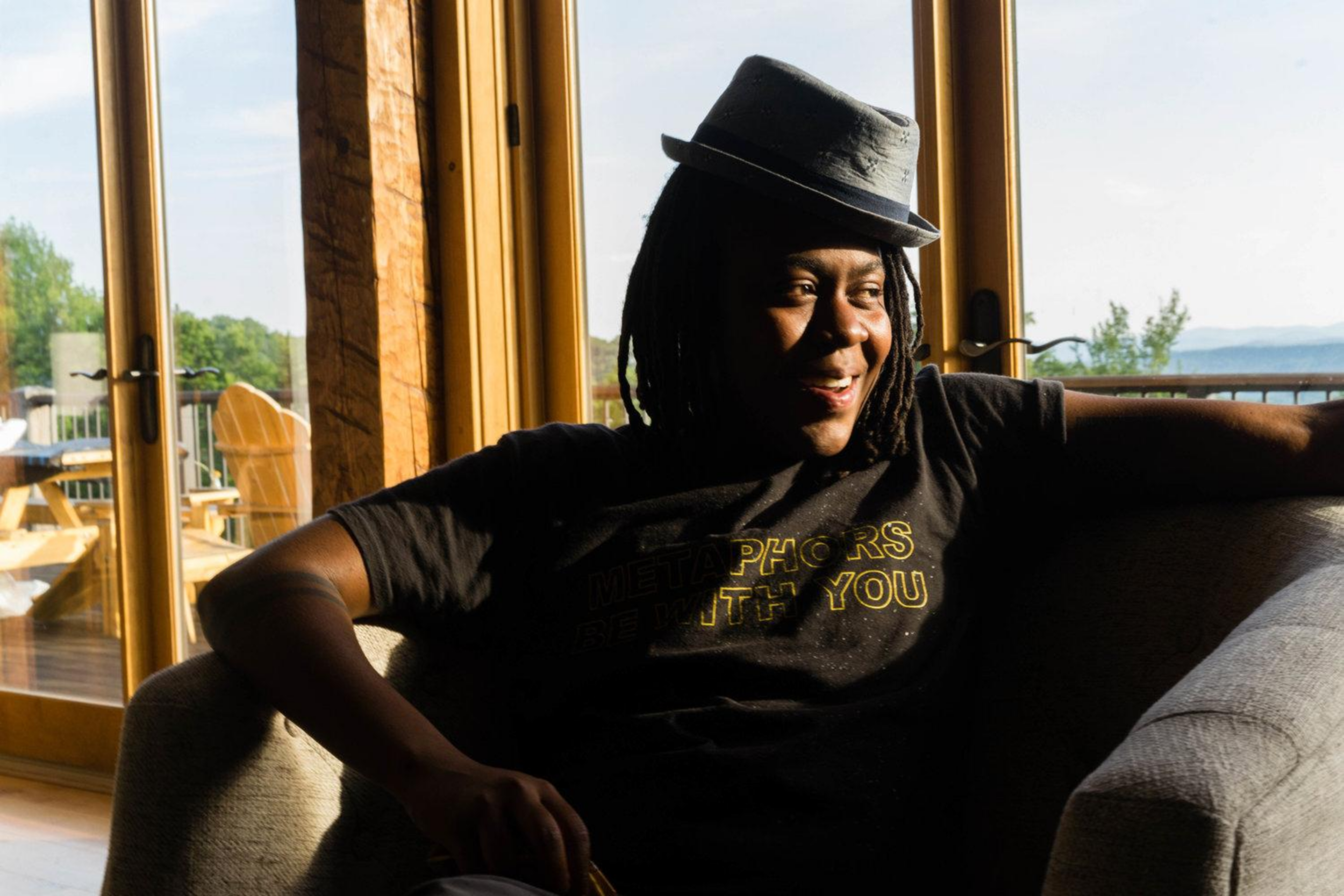Looking Back And Moving Forward With Teré Fowler-Chapman
Teré Fowler-Chapman is an accomplished mover and shaker of Tucson, AZ. She is the founder of Words on the Avenue, a unique open mic dedicated to holding space for writers of all avenues/backgrounds. Teré is a gender non-conforming artist and her work has been published in various platforms including (but not limited to): Feminist Wire, Literary Orphans, and AZ Public Media NPR. She is a winner of National Arts Strategies' Creative Community Fellowship and she is, also, a high school poetry teacher.
Teré sits down with us and reflects back at her journey not only as a writer, but as a lover and creator. We zone in on self-discovery, as well as experiences and people that have been influential along the way.
How do you feel your upbringings play a role in your creativity?
My work is an act of self-care that brings me into a room and makes me visible. I feel like there were times when I was younger that I had so much to say but wasn’t taught how to speak my truth, or given the opportunity to be my authentic self. In some parts of my childhood-- and even young adulthood-- I was voiceless. Part of that I think, as a queer person of color, is because of the lack of understanding and exposure my parents had to who I truly was. I didn’t have anyone showing up for who I was so I had to learn how to soothe and soul search my identity myself. In doing that I learned that although the parents that I physically see don’t show up for my identity I have ancestors that have and continue to, and I write through them, or perform from a place of power they instilled in me. My creativity is resilient, and is very much focused on holding space for others to set themselves free whether that be through sharing a poem or holding space on microphone for others.
What does self-care look like to you?
Self-care looks like to me asking yourself, “How are you?” and then listening to the person that answers no matter what. So if my body says, “I feel like watching Netflix all day, when everyone thinks I’m writing a poem.” Then that is what I do. Checking in with this vessel that we walk around in and with is crucial.
“It’s usually not the writing that you hate. It’s usually what’s between the lines that’s causing that feeling of hating your work.”
How did poetry come into your life? Was that your first creative outlet?
Yes it was my first outlet, I said my first metaphor when I was five. My mom asked me what I wanted to be when I grew up and I told her I wanted to be a sidewalk. She was just like, “What!?” She said I couldn’t be that, so I said I’d be a cartoon character. Being creative and finding use of creative language has always been a part of my life whether I was afraid to use it or not, or knew it or not, or truthfully believed in it or not. When I really started acknowledging that this was something I was good at. This is something I could do to empower myself and therefore empower others.
I was sixteen when I really started writing out of myself and aligning with this path of being a poet. Then it wasn’t until like 19 or 20 when I started reading out loud to friends.
Was there ever a time where you hated your writing?
Mmhmm.
How did you overcome that?
It’s usually not the writing that you hate. It’s usually what’s between the lines that’s causing that feeling of hating your work. I forget the artists name but he explains it perfectly. He talks about really good artists having impeccable taste. That when you hate your work, it’s because you taste your work and you know that you can do better. Sometimes I have tasted my work and been like, “You know. This tastes like shit. I hate this,” that’s what makes the artistry as a whole good though - that taste. So to break through that, he says continue writing until you close the gap to the point where your work looks and tastes good to you. And so… hating my work? I’ve never hated it but have I tasted it and known that it sucked? Yes. To overcome that I just kept writing because I know that those are the magical moments, and where the real creative work comes in is when you are crafting work to taste better.
What advice would you give to somebody who wants to create but is afraid to?
Anytime you’re afraid, as long as it’s not going to hurt you, if you’re afraid that’s even more reason to go for it. Check your fear and go through it.
“My proudest achievement is letting myself fall in love because I was never taught that.”
So, what inspired you to create Words on the Avenue?
Toni Morisson has this quote where she says that basically if you see a gap in the world and you notice it, it’s because you’re supposed to create it.
When I first started performing in Tucson, there weren’t a lot of places where I felt like I could go up on a stage and feel inspired. Where I didn’t have to be polished and that my work could be rough and ugly and honest. There wasn’t that space for those beginning stages of writing and the only open mics in downtown Tucson that we really had that were well attended were focused on music.
I noticed when you put a poet between two music acts the poetry get’s kind of lost. Music is universal language that everyone appreciates and poetry is too but it lives differently in the world we live in today. A lot of people still think poetry is a dead art. I say I’m a poet and they say, “for a living? How does that work?” As a musician, I don’t really feel that same pushback in my work. So what inspired me to make Words on the Avenue was just that we desperately needed that space for words that live alone on a mic. We needed a platform for folks to come as they are and walk up to the stage with their words and stand them up with their voice. We needed an audience that would support just that.
What has been the biggest thing that has surprised you in the journey of Words on the Avenue?
That people that come just to listen. ‘Cause it wasn’t made with that in mind and that’s the most magical part of Words on the Avenue. There is this sacred familiar chill that I get when someone shares something that I’ve been through but am too afraid to write down, when someone is telling you their experience and you know that experience so well it gives you goosebumps. I think people come just for that. That’s why the “WOTA fan” in me goes to Words on the Avenue.
It’s special and it’s mighty. In a world, and really in this nation, where we have a big issue with not listening or seeing each other... to have a space to just listen and see each other - that’s magic.
Is Words on the Avenue your proudest achievement? I feel like you have accomplished so much to be proud of.
No. My proudest achievement is letting myself fall in love because I was never taught that. I was taught to always want to always aspire for love or always want love but I was never taught how to truly be vulnerable and fall into a safe respectful romantic love. That’s my proudest achievement because I come from a lineage of broken homes. My fiancé does too. We are our first example of this love that is honest, resilient, vulnerable, and respectful. That... in today’s time? Hands down, my proudest achievement.
So how do you fall into love?
Uh….
I don’t know if there are steps but I know it starts with respecting yourself unconditionally. There were times where I’ve been so desperate for support or love and I was willing and did sacrifice my respect to appease or keep the peace with folks who said they love me. There are these times in my life where I have swallowed and bargained things said to me and if those same things were said to someone I cared about I would tell them that’s not love, and to run. For some reason, when we are connecting with people we get negotiable. Knowing when to negotiate and when not to negotiate and knowing what you truly stand for is at least (how I think) you prepare yourself to accept love.
“Self-discovery is a work in progress to me. Just when I think I’ve reached the finish line in my artistry and I’m going to do this for the rest of my life, I haven’t.”
What has been the most pivotal moment of your life? Where you look back at this moment and you’re like… “this changed the course of my life”?
So when I was in high school, I was a pretty good basketball player. I really believed I was going to play in the NBA. I always had English teachers in school that believed in my writings. I was just all about basketball. I remember tearing my ACL, the first game of the playoffs in the first round of my senior year. I was out during the time most players are recruited and I felt that I didn’t have the GPA to go to college without a basketball scholarship. I found myself sitting on a couch with my leg up because I had just had surgery on my knee and I was writing poems for the first time. I could’ve been watching basketball, I could’ve been studying old plays, and those were usually the things filling up a lot of my time back then but I wasn’t. I was writing poetry and have been ever since.
That is the moment where writing got really important and I recognized that it was medicine. I wasn’t performing just yet, but this thing did happen as I got better. I continued to write, and have continued to write myself to better days or into a new direction in life.
Who have been the most influential people in your personal journey?
My little sister is my best friend. We talk every other day. She’s probably read more poems than she cares to and listened to my poems when I didn’t like my taste and knew it wasn’t good. She’s just has always been such a solid support system for me. I know what good friendship is because of her. She’s just such a bright light in this world.
Also my grandfather. He gave me a lot of my taste in music and literature and history. He was always comfortable and supportive with whoever I was becoming.
“We’re our own hardest critics. It’s important to taste your work but it’s also important to be gentle on yourself.”
What has the road to self-discovery looked like to you?
Self-discovery is a work in progress to me. Just when I think I’ve reached the finish line in my artistry and I’m going to do this for the rest of my life, I haven’t. All I did was finish up a chapter and start a new one.
What are the three biggest lessons you’ve learned in your life so far?
The first one is unapologetically be and show up for yourself.
The second is to recognize your magic and your ability to call things into existence.
The third one is from my fiancé, she says, “be gentle on yourself.” We’re our own hardest critics. It’s important to taste your work but it’s also important to be gentle on yourself. The things that I believe in today, I may have not read the book two years ago or I may have not had the life experience yet. You don’t know until you know right?
What are you afraid to lose?
Myself. In whatever way that means. I’m just afraid to lose it in this world we live in today.
Aside from teaching, writing, and holding spaces, what else takes up your time?
I like to listen to vinyl records. My favorite record right now is Leon Bridges. It’s just something about vinyl. Hearing a sound scratch off of a record is a completely different experience than just listening to it in your car. Watching Netflix is my self-care thing. It’s so engraved in me to work work work and if I’m watching something that I’m interested in then it gives me a chance to focus on that and not think of the work I could be doing as a creative. In a way, it’s my reset button. I really like documentaries. I like learning about new things. If I’m not doing that I’m probably in school myself and that takes up a lot of my time. I also love hanging out with my family. I really love spending time nesting and hanging out at home with my family, having dinners, and hanging out with close friends.



